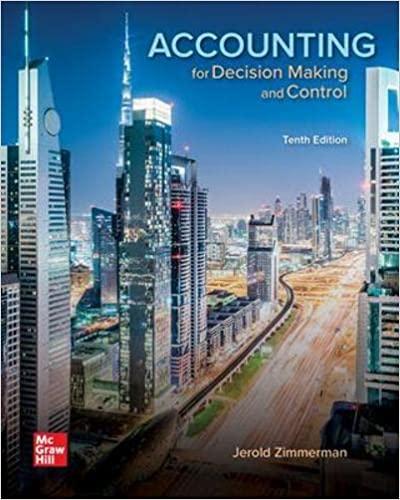Answered step by step
Verified Expert Solution
Question
1 Approved Answer
1. For ethics; Competition includes, among others, higher academic degrees, workshops and seminars on accounting matters. 2. Confidentiality for an accountant is similar to that
1. For ethics; Competition includes, among others, higher academic degrees, workshops and seminars on accounting matters. 2. Confidentiality for an accountant is similar to that of lawyers; involves disclosing financial information only at the request of a court, under penalty of contempt. 3. An estimated cost is an actual or incurred cost. 4. The materiality of a cost is a factor in classifying it as direct cost, or indirect cost, even if it is cost object. 5. Costs can be simultaneously (at the same time) variable and direct costs. 6. Variable costs "variable cost" remain unchanged by total, also does not consider production levels. 7. Total costs do not change by total, regardless of production levels. 8. Costs can be simultaneously (at the same time) fixed and direct. 9. Unit costs are never (never) used in Financial Statements. 10. Companies in the merchandise sector (supermarkets, for example) never buy raw materials and components to turn them into different finished products. 11. Indirect Manufacturing Labor Costs in manufacturing include compensation for all manufacturing labor that can be easily identified with the product. 12. Cost of Goods Sold "Cost of Goods Sold" refers to the costs of products put into production. 13. Product cost is the total of all costs allocated to that product for a specific purpose. 14. A period cost is basically equal to an operating expense. 15. Prime costs include only direct manufacturing costs. 16. Conversion costs are product costs, they are those used to transform and produce a finished product. 17. The staggered costs (Step Costs) are those that behave fixed in a relevant space and variable in the long term. 18. Patents are the usual results of costs incurred in the Research and Development function of the Value Chain. 19. The Life Cycle of Products and Services is an economic issue that has no inherence (relationship) with the Cost-Benefit
Step by Step Solution
There are 3 Steps involved in it
Step: 1

Get Instant Access to Expert-Tailored Solutions
See step-by-step solutions with expert insights and AI powered tools for academic success
Step: 2

Step: 3

Ace Your Homework with AI
Get the answers you need in no time with our AI-driven, step-by-step assistance
Get Started


